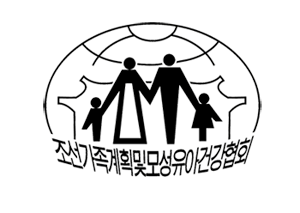

| 31 March 2016
Yemeni Association for Reproductive Health
Established in June 2009 as a not-for-profit voluntary non-governmental organization, the Yemeni Association for Reproductive Health (YARH) is registered with the Ministry of Social Affairs. YARH became an IPPF Member Association in 2010. Through 2 clinics and 1 youth-friendly service centre, the Member Association provides quality services to the people of Yemen. It has 72 volunteers and staff working on HIV and AIDS issues, and on the promotion of awareness amongst young people to empower them to make informed decisions concerning their sexual and reproductive health (SRH). YARH plays a key role in building strategic partnerships with other organisations concerned with young people's programmes in Yemen, and involves the young in identifying, articulating, implementing, monitoring and evaluating youth-friendly projects. YARH is a powerful advocate for political support for sexual and reproductive health and rights (SRHR). Critical partnerships include the Ministry of Public Health (Department of Reproductive Health, National AIDS programme, General Directorate for Women's and Child's Health); the Ministry of Youth and Sports (Scouts, guides, and Sport Clubs); San'a University; the Population Research and Studies Centre; local NGOs active in population and reproductive health; private universities (Science and Technology Colleague); and human rights, women and gender organizations (including the Women's National Committee and the National Information Centre). Visit YARH's Facebook page: https://www.facebook.com/Yemeni-Association-for-Reproductive-Health

| 31 March 2016
Korean Family Planning & Maternal Child Health Association of DPRK
The Democratic People’s Republic of Korea (DPRK): Family Health Association of Korea (FHAK) formerly Korean Family Planning & Maternal and Child Health Association (KFP&MCHA) was established in 1990. Family Health Association of Korea is actively supported by the government to diversify family planning services and to improve their quality. One of the major challenges is geographic inequality. 80% of the country’s land mass is mountainous, with mining constituting a major industry. Large numbers of people live in this area, working in coal and mineral mines and forest stations. Fertility rates are much higher than in large urban areas, the contraceptive prevalence rate is much lower, and the number of trained family planning advisers is limited. FHAK has targeted these people with reproductive healthcare and information, education and communication (IEC) programmes. Contraceptive prevalence has increased, and the method mix has shifted significantly from IUD to pills, condoms and sterilization. In 2010, FHAKdelivered 538,000 condoms and 138,000 sexual and reproductive health services through 17 service points, including 9 permanent clinics and 8 mobile facilities. The Democratic People’s Republic of Korea (DPRK): Family Health Association of Korea (FHAK) is actively supported by the government to diversify family planning services and to improve their quality. One of the major challenges is geographic inequality. 80% of the country’s land mass is mountainous, with mining constituting a major industry. Large numbers of people live in this area, working in coal and mineral mines and forest stations. Fertility rates are much higher than in large urban areas, the contraceptive prevalence rate is much lower, and the number of trained family planning advisers is limited. FHAK has targeted these people with reproductive healthcare and information, education and communication (IEC) programmes. Contraceptive prevalence has increased, and the method mix has shifted significantly from IUD to pills, condoms and sterilization. In 2010, FHAK delivered 538,000 condoms and 138,000 sexual and reproductive health services through 17 service points, including 9 permanent clinics and 8 mobile facilities.







